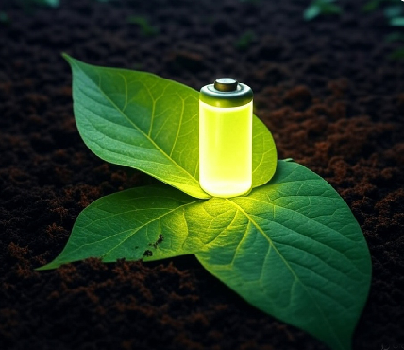In a major leap for sustainable technology, Canadian researchers have developed the world’s first biodegradable battery made from tree pulp — and it completely disappears in soil within just 60 days, leaving behind zero toxic waste.
Created by a team of scientists at the University of British Columbia, the innovative battery uses nanocellulose fibers extracted from tree pulp instead of traditional metals and plastics. Despite its natural composition, the battery is fully functional — capable of powering small electronics like sensors, LED lights, and medical devices.
“This is not just a battery — it’s a revolution in clean energy,” said lead researcher Dr. Emily Chen. “We’ve created a power source that works efficiently, then returns to nature without harming it.”
The battery’s components decompose naturally when buried, turning into organic matter that enriches the soil — a stark contrast to conventional lithium-ion batteries, which contribute significantly to e-waste pollution and are difficult to recycle.
With rising concerns over electronic waste and the environmental cost of mining for battery materials, this breakthrough has the potential to transform the global electronics and energy storage industries.
The Canadian government has praised the innovation and is exploring ways to support large-scale production for eco-friendly applications — from smart agriculture and wearables to temporary medical implants and packaging tech.







